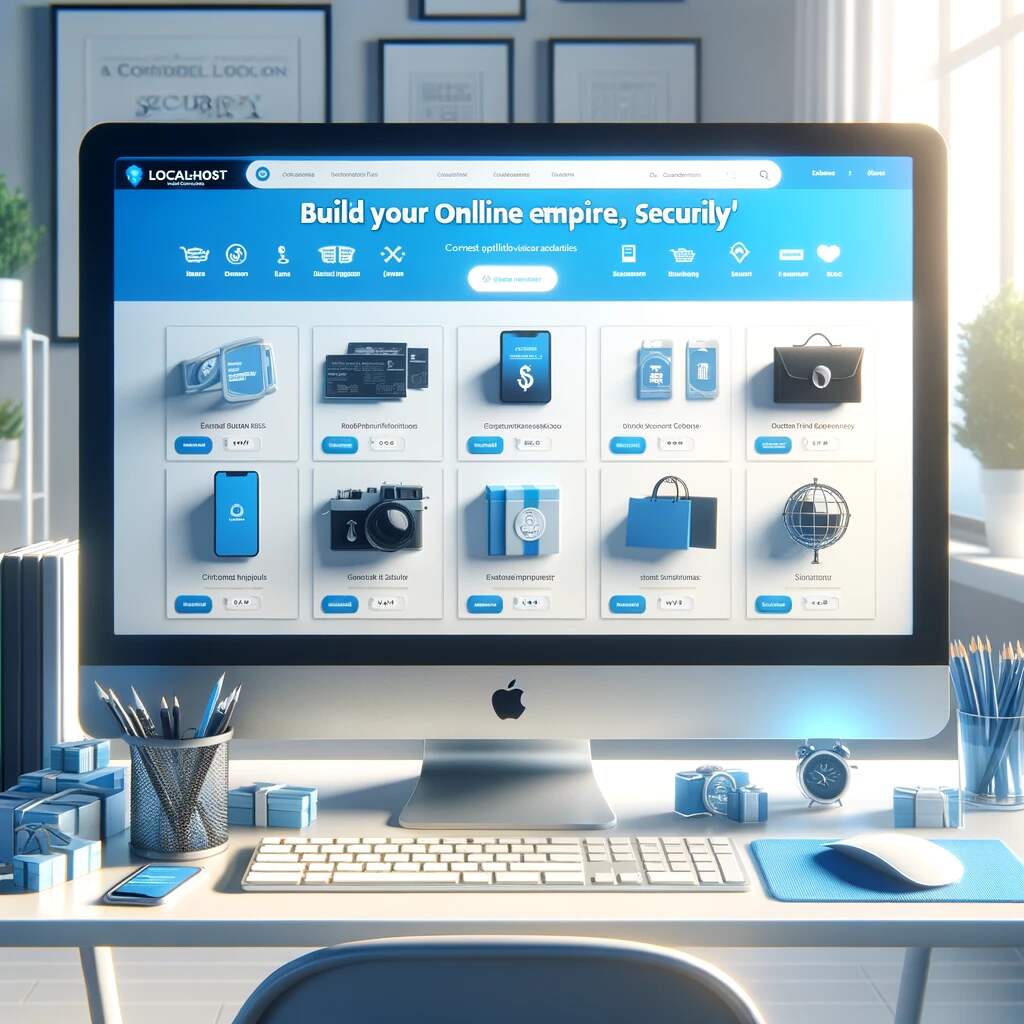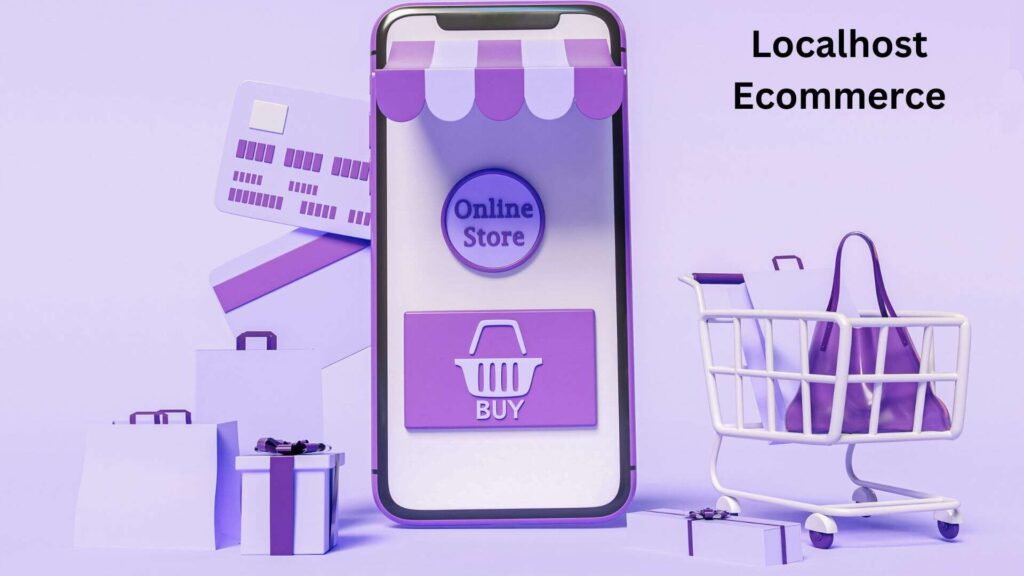“Unlock the potential of localhost ecommerce with our comprehensive guide. Launch your outstanding store with love and expertise. Learn more now!”

Introduction
Localhost serves as a virtual server that allows developers to work on websites locally without the need for a live server or web host. It provides a secure and controlled space for developers to experiment with website features and functionalities before deploying them on a live website.
Localhost refers to the local server environment where developers can test websites before they go live on the internet. By using localhost, developers can test website changes, debug code, and ensure the website functions correctly before linking it to a domain name and making it accessible on the internet.
An ecommerce store is an online platform where businesses can sell products or services to customers over the internet. It works by allowing businesses to showcase their products on a website, enabling customers to browse, select, and purchase items.
Ecommerce stores include features such as product pages, shopping carts, secure payment gateways, and order tracking. For instance, setting up a live website on a virtual server, using FTP to upload product images, and working with a web host for testing and support during development are common practices in ecommerce store development.
A localhost ecommerce project is a local server environment where developers can build and test online stores before launching them on a live website. It ensures that the functionality of the ecommerce website works properly before going live on the internet.
Developers can start developing their ecommerce websites on a virtual server like localhost to avoid any issues with the web host when testing the product. This approach streamlines the development process by allowing developers to work on the website locally before hosting it on a live server.

Benefits of Developing an Ecommerce Store on Localhost
Advantages of Building Your Store Locally:
Developing an ecommerce store on a local server offers various benefits. Firstly, it provides a safe testing environment where developers can meticulously examine product listings, checkout processes, and payment gateways without any risk to the live website. This ensures that the online store functions smoothly when it goes live.
Moreover, working on a localhost enables developers to experiment freely with different features and designs without affecting the actual online store. This freedom allows for creativity and innovation in refining the website’s overall functionality.
One of the key advantages is the faster development cycles facilitated by a local server. Developers can make immediate code changes and receive instant feedback, leading to quicker iterations and enhancements in the development process.
Building an ecommerce store on a local environment proves to be cost-effective as there are no hosting fees involved during the development phase. This not only saves resources but also provides a controlled environment for developers to work efficiently on perfecting the website before launching it on a live server or web host.

Popular Localhost Ecommerce Platforms
Introduce various open-source platforms suitable for localhost development:
When setting up an online store on a local server, WooCommerce stands out as a popular choice due to its seamless integration as a WordPress plugin. Developers find it convenient for creating and customizing websites in a local environment. Magento, while powerful, requires significant technical knowledge, making it ideal for advanced users looking to work on a virtual server.
PrestaShop offers a user-friendly experience with extensive features, making it suitable for developers testing websites on a local server before going live. On the other hand, OpenCart is lightweight and caters well to smaller stores. It’s favored by developers experimenting with plugins and product listings in a local setup.
In comparison, hosted ecommerce platforms like WooCommerce, Magento, PrestaShop, and OpenCart offer varying degrees of flexibility and limitations. While WooCommerce excels in ease of use as a WordPress plugin for setting up online stores locally, Magento demands technical expertise but provides extensive features for developers working on virtual servers.
Developers can benefit from the user-friendly interface of PrestaShop when testing websites locally before launching them online. OpenCart’s lightweight nature makes it ideal for those focusing on smaller stores and experimenting with different plugins and product listings in a controlled environment.
Setting Up a Localhost Ecommerce Project
Outline the general steps for creating a localhost ecommerce project:
Setting up a local server environment is the first step in creating a localhost ecommerce project. Choose and install software like XAMPP or MAMP to provide the necessary server environment.
Next, install your preferred ecommerce platform on your localhost. Platforms like WooCommerce or Magento are popular choices for developing online stores.
Configure database and user accounts within the local server software to ensure smooth operation of your test server. This step is crucial for storing data related to your ecommerce website.
If needed, Localhost project follow platform-specific installation steps to seamlessly integrate your chosen ecommerce platform with the local server environment. Each platform may have unique requirements for installation and setup.

Developing Your Localhost Ecommerce Store
List key elements to focus on during development:
Develop a user-friendly product management system for efficient addition, editing, and management of descriptions and images.
Test the payment gateway integration using dummy data to ensure seamless transactions on the online store.
Configure shipping settings by defining shipping zones and rates accurately to provide customers with suitable shipping options.
Customize the theme to enhance the look and feel of the website, focusing on creating an appealing and functional design.

Testing Your Localhost Ecommerce Store
When setting up a test server for your localhost ecommerce store, you create an environment to mimic the live website. This allows you to ensure that all functionalities operate smoothly before launching the online store. Utilize plugins and tools to guarantee optimal performance of product pages and the overall website on the local server. Collaborate with developers throughout this process to address any issues promptly.
Explain crucial testing aspects:
Functionality Testing:
- Verify the checkout process, shopping cart, and user accounts for a seamless user experience. Security Testing:
- Secure data handling is paramount to prevent breaches and maintain customer trust. Mobile Responsiveness:
- Optimize your website for various devices like smartphones and tablets to reach a wider audience.
Thorough testing before deployment is essential. It helps in identifying and rectifying potential issues early on, ultimately saving time and resources down the line.
Deploying Your Localhost Ecommerce Store to a Live Server
Briefly explain the process of moving your store from localhost to a live server:
To transition your localhost ecommerce store to a live server, start by uploading project files via FTP. Next, configure the database connection on the live server for seamless functionality. After deployment, test the website’s functionality extensively to identify and rectify any issues that may have arisen. Collaborate with developers to ensure all updates are accurately reflected on the live website.
Additional Considerations for Deployment:
- Pros:
- Seamless transition of project files
- Smooth configuration of database connection
- Thorough testing post-deployment
- Cons:
- Possibility of encountering unforeseen issues during testing
- Dependency on developer collaboration for accurate updates
When deploying your localhost ecommerce store to a live server, ensure you optimize the online store by installing essential plugins. This optimization is crucial in providing customers with a smooth user experience while navigating through your products and services.
Conclusion
Developing your ecommerce store on localhost provides a safe and efficient environment to build and test your online business. You can experiment with features, ensure seamless functionality, and refine your design without impacting a live site. Once you’ve thoroughly tested your store on localhost, you’re ready to confidently deploy it to a live server and take the exciting step of welcoming real customers. Remember, localhost is your development playground – utilize it to its full potential to ensure a smooth and successful launch for your ecommerce store!
